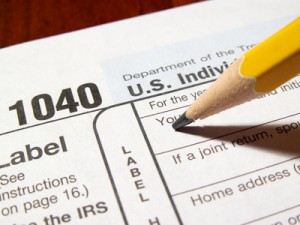Benjamin Franklin stated that the only two certainties in life are death and taxes. While there’s little you can do to cheat death when it comes, there are many tax breaks available to homeowners. This article will explain how to avoid capital gains taxes after selling a home.
There are many tax breaks available to homeowners. The Department of the Treasury, Internal Revenue Service Publication 523 explains how to avoid capital gains tax after selling your home. In 2010, you may be able to avoid capital gains tax on the sale of a home up to a profit of $250,000, or $500,000 if you are filing a joint return. If you can exclude all of the capital gains on the sale of your home, you do not need to report the sale on your tax return. Any capital gains that cannot be excluded are taxable and must be reported on Schedule D (Form 1040).
The IRS defines your main home as the one in which you live most of the time. To avoid paying capital gains tax after selling your home, you must have owned and lived in the property for at least two years during the five-year period ending on the date of the sale. These two-year periods of ownership and use do not have to be continuous nor do they have to occur at the same time. In order to avoid capital gains tax after selling a home, the two-year periods of ownership and use only have to both occur within the five-year period before the selling of your home.
In addition to ownership and time lived in the home, the IRS considers other factors in determining whether or not a home is your main home. To determine whether or not you will be able to avoid capital gains tax after selling your home, go to IRS Publication 523 for further description of what is considered your main home.
If you sell the land that your home sits on, but don’t sell the home, you cannot avoid capital gains tax on the sale of the land. Department of the Treasury, Internal Revenue Service Publication 523 also explains the criteria for avoiding capital gains tax on the sale of vacant land.
Some taxpayers can avoid capital gains tax after selling a home when additional conditions exist. Exceptions to the ownership and use tests exist under the following conditions.
- There is an exception to the use test in the five years prior to selling a home for individuals with a disability. If a person who has owned or lived in a primary home for a total of at least one year becomes physically or mentally disabled and cannot care for him/herself, the time that he/she lives in a facility licensed to care for people with that disability can count as time lived in the primary home. In order to avoid capital gains tax after selling a home, the disabled person must still meet the two-out-of-five-year ownership test.
- If your previous home was destroyed or condemned you can avoid capital gains tax when selling your replacement home if the ownership and use of the combined homes meet the two-out-of-five-year exclusion.
- If you are a member of the uniformed services or Foreign Service, employee of the intelligence community, or employee or volunteer of the Peace Corps you may be able to avoid capital gains tax after selling a home by having the two-year period of use suspended during qualified official tours of duty of either you or your spouse. By suspending the period of time you were on extended duty you may be able to qualify for the two-year use test even if you did not live in your house during the five-year period prior to the sale of the home.
For more information on how to avoid capital gains tax after selling a home, be sure to check the Department of the Treasury, Internal Revenue Service Publication 523 for further details.


California caps property tax increases at 2% on the purchase price and this limitation can amount to much more than escaping capital gains tax, which can be escaped in any event by leaving it to your heirs.